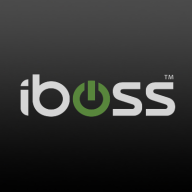


Fortinet FortiGate and Prisma Access by Palo Alto Networks are competing network security solutions in the cybersecurity domain. Prisma Access seems to have the upper hand with its comprehensive features and perceived value despite potentially higher costs, whereas Fortinet FortiGate is favored for its pricing and support.
Features: Fortinet FortiGate is known for its robust firewall capabilities, integration options, and suitability for physical network structures. It offers valuable features like VPN, web filtering, and application control. Prisma Access excels with its cloud-based architecture, providing superior scalability and remote access features. It appeals to organizations with a distributed workforce due to its seamless integration and robust security architecture.
Room for Improvement: Fortinet FortiGate could enhance its cloud integration capabilities and simplify the deployment process for faster scalability. It also needs to further develop user-friendliness in advanced configurations. Prisma Access may improve by reducing costs and increasing its pricing transparency. Enhanced customizability and advanced reporting features could also enhance its appeal.
Ease of Deployment and Customer Service: Prisma Access offers a cloud-based model that simplifies deployment and is praised for its responsive customer service. Fortinet FortiGate has a more traditional deployment process, which can be intricate but is beneficial for organizations needing control over hardware configurations. Fortinet's customer support is recognized for resolving integration issues effectively.
Pricing and ROI: Fortinet FortiGate is associated with lower upfront costs, appealing to cost-conscious organizations, and delivers a strong ROI. It offers extensive features even at a lower initial price. In contrast, Prisma Access presents higher initial expenses but justifies these with enhanced capabilities, leading to significant long-term value for organizations prioritizing flexible security solutions. Exact pricing varies based on specific configurations and scaling requirements.
| Product | Market Share (%) |
|---|---|
| Fortinet FortiGate | 6.3% |
| Prisma Access by Palo Alto Networks | 10.3% |
| iboss | 2.2% |
| Other | 81.2% |



| Company Size | Count |
|---|---|
| Small Business | 6 |
| Midsize Enterprise | 6 |
| Large Enterprise | 5 |
| Company Size | Count |
|---|---|
| Small Business | 350 |
| Midsize Enterprise | 130 |
| Large Enterprise | 187 |
| Company Size | Count |
|---|---|
| Small Business | 23 |
| Midsize Enterprise | 21 |
| Large Enterprise | 27 |
Iboss offers a comprehensive cloud-based security platform valued for its scalability and autonomous features, ensuring robust security with easy deployment and management capabilities.
Renowned for its robust security architecture, Iboss integrates seamlessly within diverse networks, delivering efficient granular filtering and advanced content categorization. Its single pane of glass console provides ease of management, allowing rapid scalability suitable for rapidly deploying environments. Operates in BYOD setups due to inline filtering without device installation. Integration with cloud-based applications enhances user control, and features like SASE, SSL inspection, and ChatGPT risk protection stand as highlights. Despite its strengths, users have pointed out areas for enhancement like direct navigation in reports, SSL decryption, and better cloud integration while having room to improve data loss prevention.
What are the most important features of Iboss?The usage of Iboss spans educational institutions, specifically K-12, to enforce internet policies, protect data, and support remote work environments. It provides web filtering and security frameworks to ensure safe browsing. Its platform-as-a-service model offers flexibility for both cloud-based and on-premises requirements, integrating seamlessly to deliver enhanced security features suitable for various deployment needs including zero trust, CASB, and network security for work-from-home setups.
Fortinet FortiGate excels in providing integrated VPN, firewalling, and Unified Threat Management (UTM) with centralized management and high availability. It supports remote access and comprehensive threat protection, making it a preferred choice for securing networks.
Fortinet FortiGate offers a robust security platform with features such as strong intrusion prevention, application control, and web filtering. Its integration with Active Directory and SD-WAN functionality provides scalable solutions for large networks. Users appreciate its ease of use through centralized management interfaces, ensuring robust security with flexible configurations. However, FortiGate could enhance its graphical interface and technical support responsiveness, address firmware bugs and costly licensing, improve logging, integrate better with third-party tools, and strengthen scalability and memory for log storage. Complexity in configuration and the need for intuitive features are noted challenges, and there's a demand for advanced security, zero-trust capabilities, and AI integration.
What are the key features of Fortinet FortiGate?Fortinet FortiGate is widely implemented across industries like education, finance, and government. Companies use it for firewall protection, VPN, and SD-WAN capabilities, ensuring secure perimeter and data center security. It facilitates remote access management and traffic routing optimization, offering reliable security and connectivity solutions.
Prisma Access by Palo Alto Networks provides consistent security for all users and applications across your remote networks. Prisma Access grants users safe access to the cloud and data center applications and the internet as well. In addition, the solution combines all of your security and networking capabilities into a single cloud-delivered platform, enabling flexible hybrid workforces.
Prisma Access can be managed two ways:
Prisma Access delivers both networking and security services, including:
Prisma Access by Palo Alto Networks Features
Prisma Access by Palo Alto Networks has many valuable key features including: App-ID, User-ID, Device-ID, SSL Decryption, Dynamic User Group (DUG) Monitoring, AI/ML-Based Detection, IoT Security, Reporting, URL Filtering, Enterprise Data Loss Prevention (DLP), Digital Experience Monitoring (DEM)*, Logging, Policy Automation, Intrusion Prevention System (IPS), and many more.
Prisma Access by Palo Alto Networks Benefits
Some of the benefits of using Prisma Access by Palo Alto Networks include:
Reviews from Real Users
Below are some reviews and helpful feedback written by Microsoft Azure Synapse Analytics
users who are currently using the solution.
PeerSpot user Partha D., Global Network Tech Lead at a computer software company, speaks about his experience using the product, saying, "It protects all app traffic so that users can gain access to all apps. Unlike other solutions that only work from ports 80 and 443, which are predominantly for web traffic, Prisma Access covers all protocols and works on all traffic patterns... The most sophisticated attacks can arise from sources that are not behind 80/443."
Tejas J., a Sr. Cloud Security Architect at a computer software company, mentions that "it is geographically dispersed, and it sits on top of Google and AWS platforms. Therefore, you don't face the standard issues, such as latency or bandwidth issues, that you usually face in the case of on-prem data centers.”
Another PeerSpot reviewer, Max I., Associate Director at Cognizant, comments that "Security is absolutely spot-on, really top-notch. It's the result of all the components that come together, such as the HIP [Host Information Profile] and components like Forcepoint, providing end-user content inspection, and antivirus. It incorporates DLP features and that's fantastic because Prisma Access makes sure that all of the essential prerequisites are in place before a user can log in or can be tunneled into."
We monitor all Secure Web Gateways (SWG) reviews to prevent fraudulent reviews and keep review quality high. We do not post reviews by company employees or direct competitors. We validate each review for authenticity via cross-reference with LinkedIn, and personal follow-up with the reviewer when necessary.